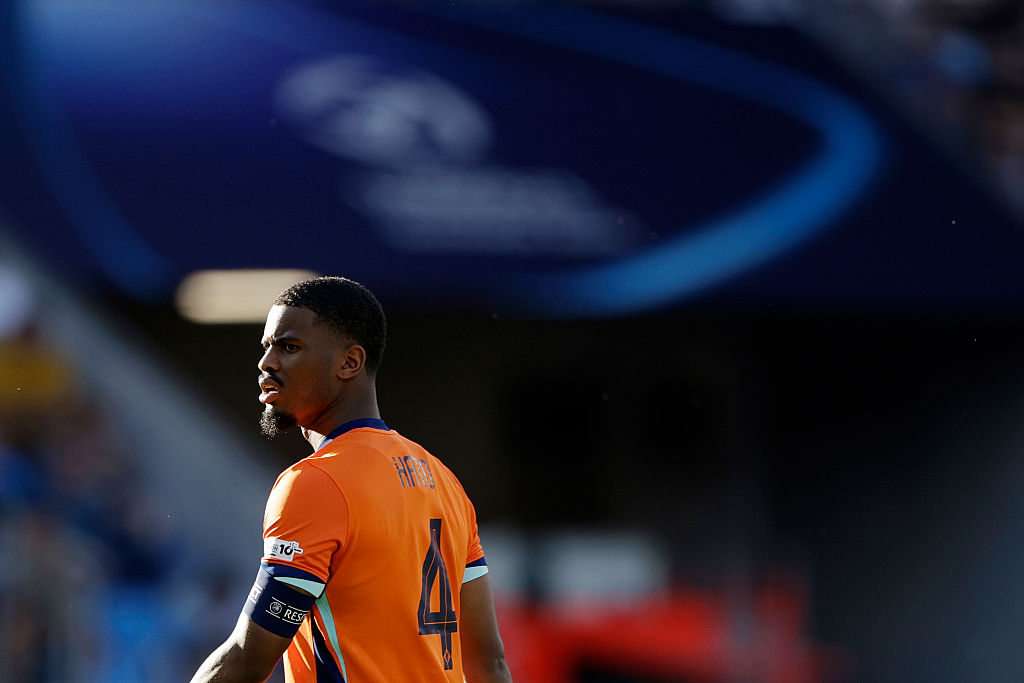Ofcom: 68 per cent of PL players endured Twitter abuse in first half of 2021-22

Around 68 per cent of Premier League footballers were subjected to abuse on Twitter in the first half of last season, according to an Ofcom report.
The regulator teamed up with The Alan Turing Institute – UK’s national institute for data science and artificial intelligence – to analyse more than 2.3 million tweets sent to top-flight players during the first five months of the 2021-22 campaign and found that almost 60,000 were abusive.
It revealed 418 of the 618 players analysed received at least one abusive tweet, with eight per cent of the abuse aimed at a protected characteristic, such as their race or gender.

Around half of the abusive messages were targeted at 12 specific players, who received on average 15 abusive tweets every day.
Manchester United players made up eight of the most top 10 abused players, with Cristiano Ronaldo and Harry Maguire receiving the most anti-social messages.
The study used new technology that can decipher whether tweets are abusive, while 3,000 random tweets were also manually reviewed. Of those 3,000 tweets, over half were positive, 27 per cent were neutral, 12.5 per cent were critical and 3.5 per cent were abusive.
Twitter was chosen due to its popularity with players, previous history of abuse and because it makes data available for research.
The best features, fun and footballing quizzes, straight to your inbox every week.
However, the Application Programming Interface (API) does not take into account the safeguards put in place.
Ofcom is preparing to regulate tech companies under new Online Safety laws, which will introduce rules for sites, apps, search engines and messaging platforms aimed at protecting users.
“These findings shed light on a dark side to the beautiful game,” Ofcom group director for broadcasting and online content Kevin Bakhurst said. “Online abuse has no place in sport, nor in wider society, and tackling it requires a team effort.
“Social media firms needn’t wait for new laws to make their sites and apps safer for users. When we become the regulator for online safety, tech companies will have to be really open about the steps they’re taking to protect users. We will expect them to design their services with safety in mind.

“Supporters can also play a positive role in protecting the game they love. Our research shows the vast majority of online fans behave responsibly, and as the new season kicks off we’re asking them to report unacceptable, abusive posts whenever they see them.”
Twitter, which says it did not receive any of the abusive tweets included in the report, is committed to eradicating abuse and recently conducted research using its own technology that found 38,000 abusive tweets were sent last season. It also removed more than 38,000 abusive tweets.
The social media company received fewer than 1,000 reports of abusive tweets from its reporting partner and is now focusing on reducing the burden on the victims by identifying abuse itself using its own technology and third-party safety tools.
Twitter is also engaging in focus groups with football partners to work on ways to reduce abuse.
Anthony Elanga. Get that head of yours up immediately ♥️— Marcus Rashford MBE (@MarcusRashford) February 5, 2022
A Twitter spokesperson told the PA news agency: “We are committed to combating abuse and, as outlined in our Hateful Conduct Policy, we do not tolerate the abuse or harassment of people on the basis of race, ethnicity, gender, gender identity or sexual orientation.
“As acknowledged in the report, this type of research is only possible because our public API is open and accessible to all. However, our publicly accessible API does not take into account the range of safeguards we put in place, so this does not completely reflect the user experience.
“We have not been provided with the accounts, tweets or dataset included in this report so we are unable to comment on these specifically.
We teamed up with @turinginst to explore the scale of Twitter abuse faced by Premier League footballers.— Ofcom (@Ofcom) August 2, 2022
“Today, more than 50 per cent of violative content is surfaced by our automated systems, further reducing the burden on individuals to report abuse.
“While we have made recent strides in giving people greater control to manage their safety, we know there is still work to be done. This is a company-wide priority as our product, policy and engineering teams continue to work at scale and pace to build a healthier Twitter.”
Ofcom staged an event at the National Football Museum in Manchester to discuss the problem, with Manchester United women’s player Aoife Mannion, Gary Lineker and Kick It Out chair Sanjay Bhandari among the panel speaking.
Mannion spoke of her experiences of Twitter abuse but said women players in particular have to “deal with the devil” by being on social media.
"This abuse is experienced by people who play, watch and work in football. We’ve seen some high profile people intimidated off the platforms because of the volume and violence of the abuse. If you’re a fan, and you see it – report it." @SanjayKickItOut@kickitout— Ofcom (@Ofcom) August 2, 2022
“It does allow players to connect with fans and supporters, particularly for women’s football because it isn’t as well established,” she said.
“It is a deal with the devil. We do need it because we need the exposure and visibility we get from it, we don’t need the abuse.”
Bhandari said the problem was on an “industrial scale” and that online was like “the Wild West”.
He said: “It is an industrial scale problem and that requires industrial scale solutions. It is very industrial, we have burner accounts set up and deleted after one tweet. The government needs to give Ofcom the tools and resources to regulate properly.
“This is the Wild West and it needs to stop being the Wild West.”
